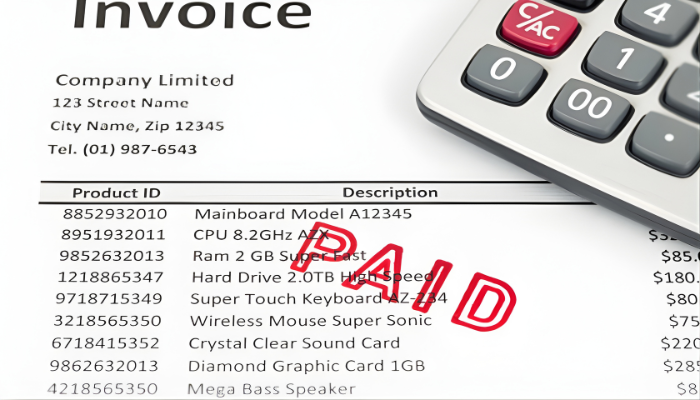 Accounts receivable represent the money that keeps your business afloat. When you issue an invoice, you have made a sale. When you get an invoice payment, you have cash flowing into your accounts. When your list of customers expands, your business is growing.
Accounts receivable represent the money that keeps your business afloat. When you issue an invoice, you have made a sale. When you get an invoice payment, you have cash flowing into your accounts. When your list of customers expands, your business is growing.
The down side is that outstanding accounts receivable also represents money that you could be using for other things, like payroll or increasing inventory. Fortunately, you can free up a good deal of that money by using accounts receivable factoring.
Tips for Leveraging Invoice Factoring
Accounts receivable factoring is one way to free up cash to get through cash flow crunches or to expand your business. Making the most of factoring starts with being smart about customer relations and management.
- 1. Get organized.
You need to get your accounts receivable in order, before you even think about factoring. You need to know which customers have outstanding invoices, if they are past due, and how much money you have tied up in your A/R portfolio. You do this by getting organized, and staying that way.
Each customer should have a file which includes their credit application and all correspondence that you send to the customer. This, added to the invoices and payment history in the accounting system, will give you a comprehensive picture of the customer, their payment history, and creditworthiness.
All payments should be entered into the accounting system within a short time of receipt. This allows you to keep track of which invoices are outstanding and give you an accurate picture of when a customer is paying their invoices.
- 2. Have clear terms and conditions for all customers.
There should be no doubt in the minds of your customers about what your credit terms and conditions are. It is a good idea to have a contract in place with any customer to whom you extend credit. Also, if you have to change the terms and conditions, a new contract should be signed before any further credit is extended.
- 3. Check the creditworthiness of all existing and new customers.
Before you extend credit to any customer, check their creditworthiness. This starts with a credit application and credit references. If you are working with an invoice factoring firm, they can do this credit check for you.
It is also important to check the creditworthiness of your existing customers. You may have had a customer for several years who paid in good order. But, what you may not know is that customer may have a very poor credit history with every other creditor. Don't let sentimentality blind you to potential problems.
- 4. Use credit limits for new customers.
When you decide to extend credit to a new customer, use credit limits at first. This lets you get a solid picture of their payment habits before extending further credit. You should be up front about the credit terms and limits. Also provide information on how they can work up to better terms and limits.
- 5. Build a strong relationship with each customer.
When you build a strong, ongoing relationship with a customer, there is a personal connection made. And it is less likely that a customer is going to do something to jeopardize a close business relationship.
You need to know the people behind your customer's logo. Follow them on social media. Send emails just to check in and see how things are going. Make note of birthdays and anniversaries. Show them that you care.
- 6. Use accounts receivable factoring wisely.
Invoice factoring allows you to get cash out of your outstanding invoices so that you can do what you need to do. It is great for solving a temporary cash flow problem.
However, it is not a magical solution that will solve all your business' problems. If you have ongoing cash flow issues, you need to address what is causing them. If you are having problems meeting payroll, you may need to cut part of your staff. If your business is slowly dying, A/R factoring is only a stopgap measure before the inevitable.
- 7. Let your factoring company handle collections.
Admit it. Collections is probably the worst part of accounts receivable. There are very few business owners who look forward to calling a customer with past due invoices and demanding payment.
Factoring companies can help. When they purchase your invoices, they take over the collections side as well. They will do the follow up and the calling that comes with doing collections. This relieves your company of the burden and lets you focus on finding new customers and building relationships with existing ones.
If you need to get through a cash crunch, or want to improve your cash flow, A/R factoring is an option to consider. Being smart about how you leverage factoring will give you the cash you need while making your business stronger.

Photo Jamie Corder | Used under Creative Commons image attribution license 2.0
















